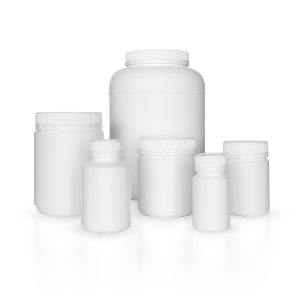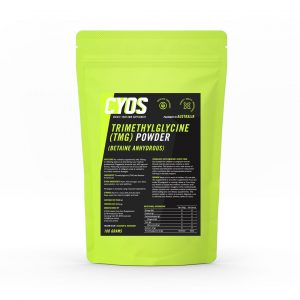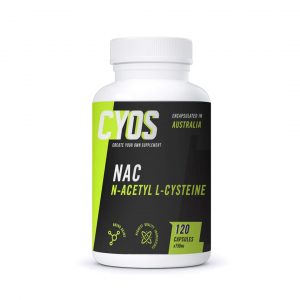


Health
J J 11 Nov 2019
Benefits of Trimethylglycine (TMG)
Share
What is Trimethylglycine?
Trimethylglycine or TMG is an amino acid found in various food sources, particularly beets (hence the alternative name of betaine), quinoa, and spinach. It’s also naturally produced in the liver. TMG contains three methyl groups and functions very closely with other nutrients like choline, folic acid, and vitamin B12.
TMG has two major functions in the body. The first one is to act as a methyl donor – influencing various bodily processes such as detoxification, liver health, and protein metabolism – and the other is to promote fluid balance which is critical for cell growth.
Apart from its basic roles, TMG has also been studied for its potential effects on physical performance, power output, energy, and muscle growth. These effects have made TMG a trendy ingredient in many gym supplements, often included in the form of betaine anhydrous.
Performance and Health Benefits of Taking Trimethylglycine
1. Heart Health
Homocysteine is an amino acid found in blood and has been linked to higher risks of heart disease. Trimethylglycine helps lower the levels of homocysteine. Lowering homocysteine levels has been linked to lower risks of heart disease and strokes as high levels of homocysteine can cause arterial plaque formation which causes our arteries to harden and get clogged. [1]
2. Digestion
The stomach has to have the right level of acidity to digest food properly. If your acid levels are low, the body will not be capable of breaking down food and absorbing its nutrients. This can increase the risk for nutrient deficiencies as well as problems like bloating, acid reflux, constipation, and indigestion.
TMG in the form of Betaine HCl has been shown to help improve symptoms in volunteers with low acidity. Moreover, maintaining stomach acidity can also lead to healthier digestion as well as a more efficient nutrient absorption. [2]
3. Liver Health
Symptoms of obesity, alcohol abuse, and even diabetes can cause a massive uptick of fatty acid build up in the liver. While the liver naturally retains some fat, especially as an extra energy reserve in case of famine, too much can lead to fatty liver disease. [3, 4]
Studies show supplementing with TMG can help reduce the amount of fatty acids broken down by the liver. In turn, this reduces fatty acid accumulation. Some scientists also note how some patients have recovered from liver damage by taking TMG. [5]
4. Muscle Benefits
An ergogenic is an ingredient or substance supplemented to improve physical performance, recovery, or stamina.
TMG is right up there with some of the recently trending ergogenics in formulas and with good reason. Studies demonstrate TMG’s ability to boost muscle power, endurance, and even promote muscle protein synthesis – the very process required to put on lean mass. It’s also been shown to accelerate fat loss, especially in obese patients. [6]
TMG also functions similar to creatine and even promotes creatine synthesis in the body. This makes TMG a good creatine support ingredient in many gym formulas or stacks. [7]
5. Boost SAMe levels
One little known benefit of taking TMG is increasing our body’s S-adenosylmethionine (SAMe) production.
SAMe is a component required in the synthesis of Phosphatidylcholine. Phosphatidylcholine is a compound mainly known for its brain health and cognitive benefits. Other than brain health, SAMe can also be a mood enhancer, boost liver health, and support joint health and recovery. [8]
6. Methyl donor
As we mentioned earlier, TMG is a molecule with three methyl groups. These methyl groups are passed around inside the body through a process known as methylation. Methylation is critical for many physiological processes, and the most important is the methylation of homocysteine to form methionine.
Methionine is a major component of creatine synthesis. Studies have shown that the presence of high levels of creatine is known to boost muscle strength levels in athletes. [9, 10]
7. Osmoregulator
Balancing fluid levels is vital for human survival as fluid imbalances can cause shrinking or bloating of cells, causing internal tissue or organ damage. TMG can act as an osmolyte, a compound or substance that functions to balance fluid levels inside and outside of cells. [11]
Summary
TMG is a naturally occurring substance in the body that can also be consumed through beets, spinach, and quinoa. TMG’s role in the body are primarily for cellular fluid balance and methylation, but there are also benefits to supplementing TMG. Research has proven the benefits of supplementation for heart health, detoxification, muscle growth, and healthy digestion. It can also act as an ingredient that supports creatine levels in the body, boosting power output and delaying fatigue during exercise.
TMG is available in either POWDER or CAPSULE form.
References:
- McRae MP. Betaine supplementation decreases plasma homocysteine in healthy adult participants: a meta-analysis. J Chiropr Med. 2013;12(1):20–25. doi:10.1016/j.jcm.2012.11.001
- Yago MR, Frymoyer AR, Smelick GS, et al. Gastric reacidification with betaine HCl in healthy volunteers with rabeprazole-induced hypochlorhydria. Mol Pharm. 2013;10(11):4032–4037. doi:10.1021/mp4003738
- https://www.sciencedaily.com/releases/2016/12/161219115546.htm
- Petäjä EM, Yki-Järvinen H. Definitions of Normal Liver Fat and the Association of Insulin Sensitivity with Acquired and Genetic NAFLD-A Systematic Review. Int J Mol Sci. 2016;17(5):633. Published 2016 Apr 27. doi:10.3390/ijms17050633
- Kathirvel E, Morgan K, Nandgiri G, et al. Betaine improves nonalcoholic fatty liver and associated hepatic insulin resistance: a potential mechanism for hepatoprotection by betaine. Am J Physiol Gastrointest Liver Physiol. 2010;299(5):G1068–G1077. doi:10.1152/ajpgi.00249.2010
- Du J, Shen L, Tan Z, et al. Betaine Supplementation Enhances Lipid Metabolism and Improves Insulin Resistance in Mice Fed a High-Fat Diet. Nutrients. 2018;10(2):131. Published 2018 Jan 26. doi:10.3390/nu10020131
- Hoffman JR, Ratamess NA, Kang J, Rashti SL, Faigenbaum AD. Effect of betaine supplementation on power performance and fatigue. J Int Soc Sports Nutr. 2009;6:7. Published 2009 Feb 27. doi:10.1186/1550-2783-6-7
- Sharma A, Gerbarg P, Bottiglieri T, et al. S-Adenosylmethionine (SAMe) for Neuropsychiatric Disorders: A Clinician-Oriented Review of Research. J Clin Psychiatry. 2017;78(6):e656–e667. doi:10.4088/JCP.16r11113
- Obeid R. The metabolic burden of methyl donor deficiency with focus on the betaine homocysteine methyltransferase pathway. Nutrients. 2013;5(9):3481–3495. Published 2013 Sep 9. doi:10.3390/nu5093481
- Brosnan JT, Da silva RP, Brosnan ME. The metabolic burden of creatine synthesis. Amino Acids. 2011;40(5):1325-31.
- Zhao G, He F, Wu C, et al. Betaine in Inflammation: Mechanistic Aspects and Applications. Front Immunol. 2018;9:1070. Published 2018 May 24. doi:10.3389/fimmu.2018.01070
CYOS blog content is for informational and educational purposes only, and should not be considered medical advice, diagnosis or treatment recommendations. Always consult with your doctor or medical professional before using any dietary supplements or if you suspect you have any medical concerns or issues.
Share
SHOP OUR PRE-MADE CAPSULES RANGE
100% Pure • Encapsulated in Australia • Vegetarian Capsules • No Fillers • No Additives • No Binders • No Anti Caking Agents • Allergen Free • No Preservatives • Non GMO
Our best sellers
 Search Products
Search Products
 All Products A-Z
All Products A-Z
 Pre-Made Capsules
Pre-Made Capsules
 Additives
Additives
 Amino Acids
Amino Acids
 Anti-Oxidants
Anti-Oxidants
 Beauty
Beauty
 Bioactive Compounds
Bioactive Compounds
 Bulk Items
Bulk Items
 Empty Capsules
Empty Capsules
 Fats & Oils
Fats & Oils
 Fibers
Fibers
 Herbal Extracts
Herbal Extracts
 Joints
Joints






 Mushroom Extracts
Mushroom Extracts Nootropics
Nootropics Packaging
Packaging Probiotics & Digestion
Probiotics & Digestion Proteins
Proteins Sleep
Sleep Stimulants
Stimulants Super Blends
Super Blends Super Foods
Super Foods Tools
Tools Vitamins & Minerals
Vitamins & Minerals Weight
Weight Workout
Workout